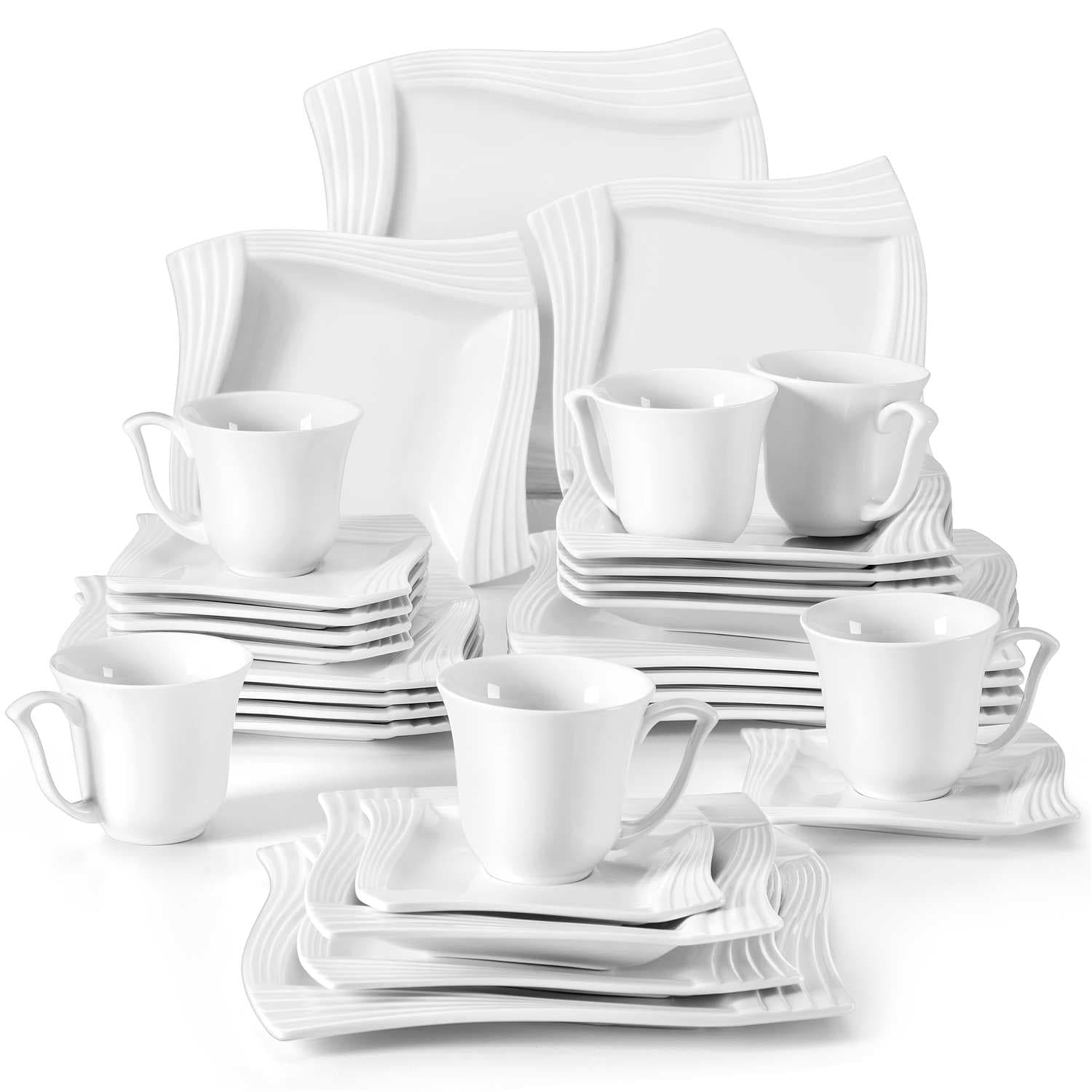Discover the Hidden Gems of Porcelain Dinnerware That Will Elevate Your Dining Experience!
When it comes to dining, the essence of a memorable meal often extends beyond the food itself; it encompasses the entire experience, including the ambiance and the tableware that graces your dining table. Porcelain dinnerware stands out as a symbol of elegance and sophistication, transforming ordinary meals into extraordinary occasions. However, amidst the vast array of options available, there are hidden gems waiting to be discovered. This article will guide you through the enchanting world of porcelain dinnerware, providing insights into its various types, where to purchase them, and how to care for these exquisite pieces. Whether you're setting the table for a special occasion or simply elevating your everyday dining, the right porcelain dinnerware can truly enhance your experience.

Understanding Porcelain Dinnerware
Porcelain dinnerware is a type of ceramic that is known for its strength, durability, and translucent quality. Made from a mixture of kaolin, feldspar, and quartz, this fine material is fired at high temperatures, resulting in a dense and non-porous product that can withstand the rigors of daily use. One of the key benefits of porcelain dinnerware is its ability to retain heat, keeping your food warm longer. Additionally, porcelain is often chip-resistant and dishwasher-safe, making it a practical choice for modern households. For many, the aesthetic appeal of porcelain is unmatched, with its smooth surface and elegant designs seamlessly complementing any table setting, from casual brunches to formal dinners.
Types of Porcelain Dinnerware
Within the realm of porcelain dinnerware, there are several types that cater to different preferences and needs. Bone china, known for its remarkable strength and lightweight nature, is made with a high percentage of bone ash, giving it a unique translucency and a warm tone. Fine china, on the other hand, is a more general term that encompasses various types of porcelain and is celebrated for its delicate appearance and intricate designs. Stoneware, while not traditional porcelain, is often included in the discussion due to its robust nature and versatility. Each type has its unique features, making them suitable for different occasions; for instance, bone china is often reserved for formal dining, while stoneware may be ideal for everyday meals.
Bone China vs. Fine China
When comparing bone china and fine china, the differences become clear. Bone china is typically more durable due to its composition, which includes bone ash, while fine china is made primarily from kaolin and feldspar. This makes bone china less prone to chipping and cracking, making it suitable for both formal and casual use. In terms of appearance, bone china often has a whiter and more translucent quality, whereas fine china may feature more vibrant colors and detailed patterns. Understanding these differences can help buyers make informed choices based on their intended use and personal style.
Where to Buy Porcelain Dinnerware
When it comes to purchasing porcelain dinnerware, consumers have a variety of options at their disposal. Online retailers often present a vast selection, allowing you to explore different styles and price ranges from the comfort of your home. Specialty kitchenware stores, on the other hand, provide a tactile experience, allowing you to feel the weight and quality of the pieces before making a decision. Local artisan shops are also wonderful places to find unique, handcrafted porcelain that stands out from mass-produced items. When evaluating quality and authenticity, look for markings on the bottom of the pieces, which can indicate the manufacturer and the type of porcelain used. Additionally, reading customer reviews and ratings can give you insights into the durability and overall satisfaction of the dinnerware.
Considerations When Shopping
Before making a purchase, it's essential to consider several key factors. First, think about the style of dinnerware that complements your home décor and personal taste. Do you prefer classic white porcelain or something with vibrant patterns? Next, consider how you intend to use the dinnerware—will it be for everyday meals, special occasions, or both? Lastly, familiarize yourself with the care instructions, as some porcelain may require specific cleaning methods to maintain its beauty over time. Taking these considerations into account will ensure that your investment in porcelain dinnerware brings lasting joy and satisfaction.
Maintenance and Care for Porcelain Dinnerware
Caring for porcelain dinnerware is crucial to preserving its beauty and longevity. Most porcelain can be safely washed in the dishwasher, but it's wise to use a gentle cycle and avoid abrasive detergents. Hand washing with mild soap and a soft sponge is also an excellent option, especially for intricate patterns. When storing your dinnerware, place felt pads between plates to prevent scratching and avoid stacking them without protection. Additionally, be mindful of sudden temperature changes, as this can cause cracking. By following these simple care guidelines, you can ensure that your porcelain dinnerware remains a treasured part of your dining experience for years to come.
Elevate Your Dining with Porcelain Dinnerware
In conclusion, choosing quality porcelain dinnerware is an investment that can significantly enhance your dining experiences. From understanding the different types of porcelain to exploring various purchasing options, this article has provided valuable insights into the world of porcelain dinnerware. By taking the time to select the right pieces and care for them properly, you can discover your own hidden gems that elevate every meal, turning simple gatherings into memorable occasions. So, whether you're hosting a dinner party or enjoying a quiet meal at home, let your porcelain dinnerware shine and add a touch of elegance to your dining table.








